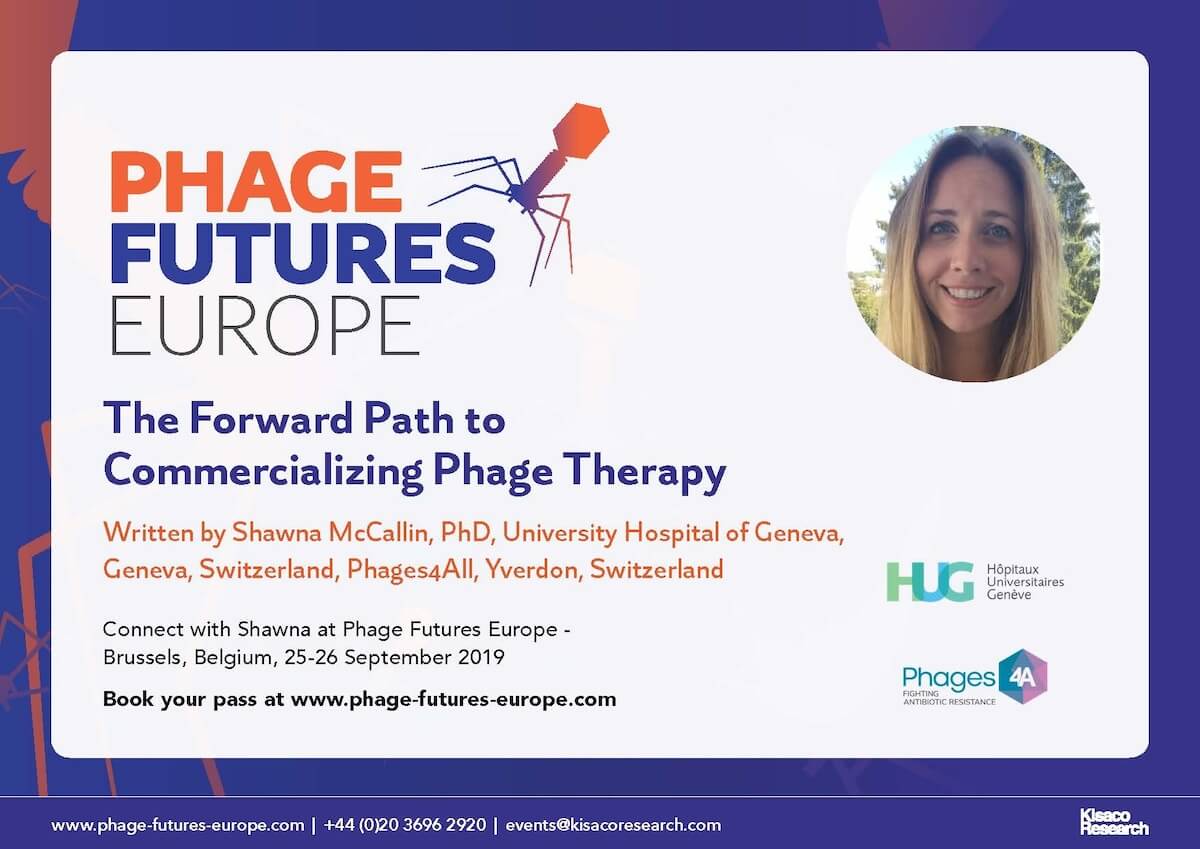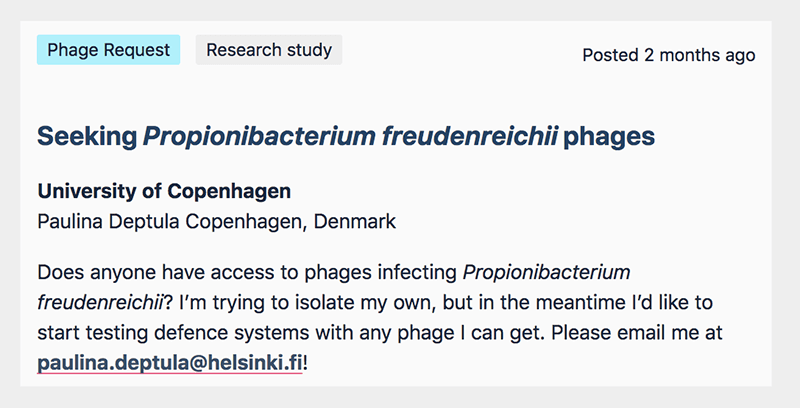What’s the path forward when it comes to phage therapy? According to Shawna McCallin of the University Hospital of Geneva and Phages4All, clinical data is the priority, but it won’t be enough.
"The recent bankruptcy of Achaogen, a biotech producing a clinically-proven antimicrobial, is reason to heed caution that proof-of-efficacy is not enough to ensure viable commercialization.”
Read Shawna’s perspective piece here, and chat with her in person next month at Phage Futures EU in Brussels! (Use registration code PD10 for 10% off!)

Associate Professor Ruby Lin of the Westmead Institute for Medical Research (last week’s Capsid & Tail guest writer! has been awarded a grant from BGI Australia to build Australia’s first “phage biobank”! The phage bank will give Australian researchers access to a range of high-quality phages, and could eventually support development of personalized phage therapy in Australia.
Polish company Proteon Pharmaceuticals has been awarded a 2.9 million Euro grant from the European Regional Development Fund to develop phages to fight bacterial infections in fish farming (aquaculture). The grant will help Proteon improve and automate its phage selection process.
What’s the hardest part of phage genome annotation? According to Marta Sampaio and colleagues at the University of Minho, it’s finding phage promoters. Here’s a new tool they developed, PhagePromoter, to help you find them.
The journal Viruses will be awarding two travel awards for Postdoctoral Researchers and PhD students. Each award will consist of 800 Swiss Francs for travel to a virology conference in 2020. Apply here by Oct. 31, 2019!
To help you find a phage conference to spend this on, check out Phage Directory’s Events page!






